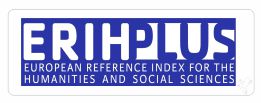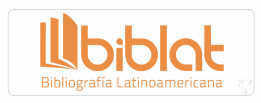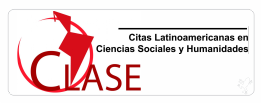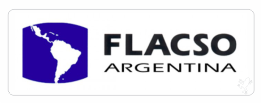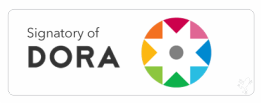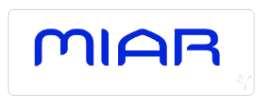Using videos with sociocultural content to improve the EFL writing among 10th graders
DOI:
https://doi.org/10.34069/RA/2022.9.03Palabras clave:
videos, sociocultural content, EFL writing skill.Resumen
Writing is a way to express and communicate ideas and thoughts. However, during class, students present different challenges and difficulties to convey their ideas using the vocabulary learnt in the English class. The current paper describes an action research process aimed at exploring the contributions that videos with sociocultural content have for the improvement of the writing skill in English among 10th graders at Institución Educativa Jorge Eliécer Gaitán in Florencia-Caquetá, Colombia. This research was developed in four interventions in which surveys and researchers’ field notes were the instruments used to collect data. The findings of this research demonstrated the impact and benefits of the use of videos to improve students’ writing skill. Additionally, along with the interventions it was possible to evidence students’ motivation because they participated, corrected, and improved the written paragraphs together.
Descargas
Citas
Akhondi, M., Malayeri, F. A., & Samad, A. A. (2011). How to teach expository text structure to facilitate reading comprehension. The Reading Teacher, 64(5), 368-372. https://doi.org/10.1598/RT.64.5.9
Alméciga, E., Yesid, W., & Evans, R. (2014). Mentor texts and the coding of academic writing structures: A functional approach. How, A Colombian Journal for Teachers of English, 21(2), 94-111. https://doi.org/10.19183/how.21.2.6
Alpala, D., & Peña, N. (2014). A virtual room to enhance writing skills in the EFL class. HOW, A Colombian Journal for Teachers of English, 21(1), 62-81. https://doi.org/10.19183/how.21.1.15
Amado, H. (2010). Screenwriting: A Strategy for the Improvement of Writing Instructional Practices. Profile Issues in Teachers Professional Development, 12(2), 153-164.
Anggraeni, I. Y., & Apsari, Y. (2021). Students’ responses toward think talk write strategy in teaching writing. PROJECT (Professional Journal of English Education), 4(4), 568-573. https://doi.org/10.22460/project.v4i4.p568-573
Arkhipova, M. V., Zhulina, E. V., Shutova, N. V., Orlova, O. A., & Medvedeva, E. Y. (2020). Teaching EFL through culture and technologies. Journal of Physics: Conference Series, 1691(1). https://doi.org/10.1088/1742-6596/1691/1/012173
Burns, A. (1998). Collaborative Action Research for English Language Teachers. Cambridge: Cambridge University Press. Retrieved from https://www.researchgate.net/publication/245686550_Collaborative_action_research_for_English_teachers
Cardenas, M. (2008). Psycho-linguistic and socio-cultural approaches to language learning: A never ending debate. Colombian Applied Linguistics Journal, (10), 142-154. https://doi.org/10.14483/22487085.102
Carrera, B. & Mazzarella, C. (2001). Vygotsky: enfoque sociocultural. Educere, 5(13), 41-44.
Carvajal, N., Flórez, R., & Edith, E. (2014). Collaborative work as an alternative for writing research articles. Profile Issues in Teachers Professional Development, 16(1), 119-136. https://doi.org/10.15446/profile.v16n1.36965
Colás-Bravo, P. C. B., Conde-Jiménez, J. C. J., Reyes-de, S. R. D. C., Colás-Bravo-Bravo, P., Conde-Jiménez, J., & Reyes-de-Cózar, S. (2019). The development of the digital teaching competence from a sociocultural approach. Comunicar. Media Education Research Journal, 27(2), 19-30. https://doi.org/10.3916/C61-2019-02
Corbin, J., & Strauss, A. (2015). Basic of qualitative research: Techniques and procedures for developing grounded theory. Thousand Oaks, CA: Sage.
Creswell, J. W., & Poth, C. N. (2016). Qualitative inquiry and research design: Choosing among five approaches. Sage publications.
Defazio, J., Jones, J., Tennant, F., & Hook, S. A. (2010). Academic Literacy: The Importance and Impact of Writing across the Curriculum--A Case Study. Journal of the Scholarship of Teaching and Learning, 10(2), 34-47.
Denzin, N., & Lincoln, Y. (2005). The SAGE handbook of qualitative research. Thousand Oaks, CA: Sage Publications. Retrieved from https://books.google.com.co/books/about/The_SAGE_Handbook_of_Qualitative_Researc.html?id=X85J8ipMpZEC&redir_esc=y
Dohaney, J., Brogt, E., & Kennedy, B. (2015). Strategies and perceptions of students' field note-taking skills: Insights from a geothermal field lesson. Journal of Geoscience Education, 63(3), 233-249. https://doi.org/10.5408/13-026.1
Erkan, D. Y., & Saban, A. ?. (2011). Writing performance relative to writing apprehension, self-efficacy in writing, and attitudes towards writing: A correlational study in Turkish tertiary-level EFL. The Asian EFL Journal Quarterly, 13(1), 164-192.
Freeman, D. (1998). Doing teacher-research: From inquiry to understanding. New York, NY: Heinle & Heinle Publishers. Retrieved from https://www.amazon.com/-/es/Donald-Freeman/dp/0838479006
Gaddis, M. L. (2020). Faculty and Student Technology Use to Enhance Student Learning. International Review of Research in Open and Distributed Learning, (21)4, 39-60. https://doi.org/10.19173/irrodl.v21i3.4600
Groves, R. M., Fowler Jr, F. J., Couper, M. P., Lepkowski, J. M., Singer, E., & Tourangeau, R. (2011). Survey methodology (Vol. 561). John Wiley & Sons.
Ilin, G., Kutlu, Ö., & Kutluay, A. (2013). An Action Research: Using videos for teaching grammar in an ESP class. Procedia-Social and Behavioral Sciences, 70, 272-281. https://doi.org/10.1016/j.sbspro.2013.01.065
Ivic, S. (2016). Frequency of Applying Different Teaching Strategies and Social Teaching Methods in Primary Schools. Journal of Education and Practice, 7(33), 66-71.
Ivygina, A., Pupysheva, E. & Mukhametshina, D. (2019). Formation of Sociocultural Competence among Foreign Students. Journal of Social Studies Education Research, 10 (4), 288-314.
James, E. A., Milenkiewicz, M. T., & Bucknam, A. (2008). Participatory action research for educational leadership: Using data-driven decision making to improve schools. Sage.
Kaakinen, J. K., Salonen, J., Venäläinen, P., & Hyönä, J. (2011). Influence of text cohesion on the persuasive power of expository text. Scandinavian journal of psychology, 52(3), 201-208. https://doi.org/10.1111/j.1467-9450.2010.00863.x
Kim, H. (2015). Using Authentic Videos to Improve EFL Students’ Listening Comprehension. International Journal of Contents, 11(4), 15-24. https://doi.org/10.5392/IJoC.2015.11.4.015
Krulatz, A. (2019). Content based instruction in teacher education: Reshaping pre-service teachers' beliefs about language teaching. ELTED, 22, 9-16.
Lei, X. (2008). Exploring a sociocultural approach to writing strategy research: Mediated actions in writing activities. Journal of Second Language Writing, 17(4), 217–236. https://doi.org/10.1016/j.jslw.2008.04.001
Manalu, C. N. F., Sitopu, M. K., Silaban, A. P., & Tarigan, N. W. P. (2021). IMPROVING WRITING SKILL OF NARRATIVE TEXT BY USING SHORT VIDEO AT SMA NEGERI 1 SILAU KAHEAN. Journal of Languages and Language Teaching, 9(2), 257-263. https://doi.org/10.33394/jollt.v9i2.3501
Martínez, L. M. (2015). The use of genre theory for improving writing proficiency skills in explanations. Ikala, revista de lenguaje y cultura, 20(2), 189-204. https://doi.org/10.17533/udea.ikala.v20n2a04
Mastan, M. E. B., Maarof, N., & Embi, M. A. (2017). The effect of writing strategy instruction on ESL intermediate proficiency learners’ writing performance. Journal of Educational Research and Review, 5(5), 71-78.
McGranahan, C. (2020). Introduction. On Writing and Writing Well: Ethics, Practice, Story. In C. McGranahan (Ed.), Writing Anthropology: Essays on Craft and Commitment (pp. 1-20). New York, USA: Duke University Press. https://doi.org/10.1515/9781478009160-002
McNiff, J. (2016). You and your action research project. London: Routledge. https://doi.org/10.4324/9781315693620
Messuri, K. (2016). Writing Effective Paragraphs. The Southwest Respiratory and Critical Care Chronicles, 4(15), 86-88. https://doi.org/10.12746/swrccc.v4i15.290
Metruk, R. (2018). Extensive listening practice of efl learners with authentic English videos. Teaching English with Technology, 16(4), 3-19.
Neissari, M., Ashraf, H., & Ghorbani, M. (2017). Humorous Videos and Idiom Achievement: Some Pedagogical Considerations for EFL Learners. Iranian Journal of Language Teaching Research, 5(3), 109 -127.
Okari, F. (2016). The Writing Skill in the Contemporary Society: The Kenyan Perspective. Journal of Education and Practice, 7(35), 65-69.
Oxford, R. L. (2003). Language learning styles and strategies: Concepts and relationships. International Review of Applied Linguistics in Language Teaching, 41(4), 271-278. https://doi.org/10.1515/iral.2003.012
Özkurkudis, M. J., & Bümen, N. T. (2019). Flipping the writing classroom: Using grammar videos to enhance writing. Journal of Education and Future, (15), 1-16. https://doi.org/10.30786/jef.425632
Park, Y., & Jung, E. (2016). Exploring the Use of Video-clips for Motivation Building in a Secondary School EFL Setting. English Language Teaching, 9(10), 81-89. https://doi.org/10.5539/elt.v9n10p81
Pazyura, N. (2016). Influence of Sociocultural Context on Language Learning in Foreign Countries. Comparative Professional Pedagogy, 6(2), 14-19. https://doi.org/10.1515/rpp-2016-0012
Patton, M. Q. (2002). Qualitavie research & evaluation methods (3rd ed.) Thousand Oaks, CA: Sage Publications, Inc. Retrieved from https://www.textbooks.com/Qualitative-Research-and-Evaluation-Methods-3rd-Edition/9780761919711/Michael-Patton.php
Rao, P. S. (2019). Teaching of writing skills to foreign or second language learners of English. International E-Journal for Research in ELT, 5(2), 136-152.
Rivai, I. M., Arniz, E. A., & Mujadidi, S. (2017). The Effectiveness of Using Video on Students’ Writing Ability in Teaching Descriptive Text (A Case Study at Tenth Grade of Smk Pasundan 1 Kota Serang). Journal of English Language Studies, 2(2) 155-165. https://doi.org/10.30870/jels.v2i2.2243
Sianna, S. (2018). Teaching Writing with Authentic Video in EFL Classroom. ELS Journal on Interdisciplinary Studies in Humanities, 1(4), 448-458. https://doi.org/10.34050/els-jish.v1i4.5395
Silviyanti, T., & Yusuf, Y. (2015). EFL Teachers' Perceptions on Using ICT in Their Teaching: To Use or to Reject? Teaching English with Technology, 15(4), 29-43.
Stefl-Mabry, J., Dequoy, E., & Stevens, S. (2012). Retrospective Reflection: Insight into PreService School Librarians’ Competencies and Skill Development as Revealed through Field Notes. School Library Research, 15(12), 1-16.
Styati, E. W. (2016). Effect of YouTube Videos and Pictures on EFL Students' Writing Performance. Science Dynamics [Dinamika Ilmu], 16(2), 307-317. https://doi.org/10.21093/di.v16i2.534




